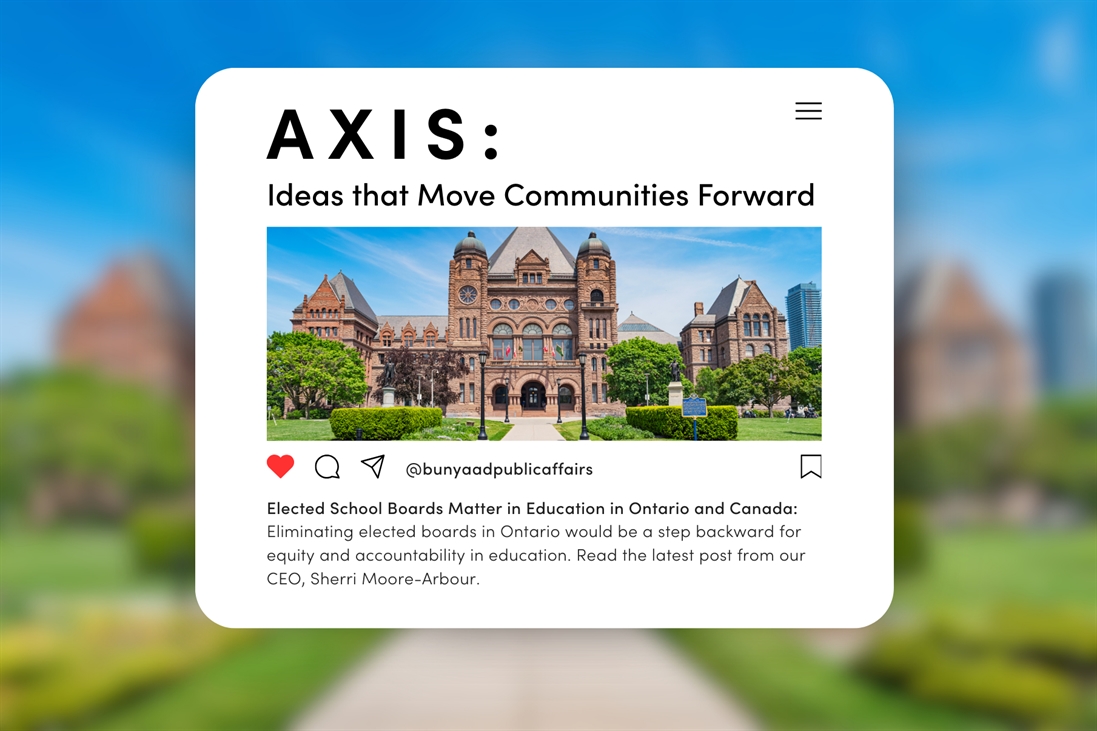 Back
BackElected School Boards Matter in Education in Ontario and Canada
- August 21, 2025
Why Elected School Boards Matter in Ontario Education
At the recent Association of Municipalities of Ontario conference, Education Minister Paul Calandra suggested to the media that elected school boards may no longer be necessary. At the same time, Bill 33, the so-called Education Accountability Act, contains language that leaves real ambiguity about the future of trustee governance.These remarks are not just technical details in legislation. They signal a willingness to unsettle one of the most fundamental features of public education in Ontario: locally elected representation.
Ask someone what school trustees do, and the answers are often uneven. Some will point to headlines about scandals. Others will not be sure at all. That invisibility makes trustees an easy target, and it is exactly why this moment matters.
Trustees are the bridge between communities and one of our most important public systems. They connect families and local voices to the governance of schools. They hold the tension between provincial standards and community realities. And they bring equity and representation into the system, ensuring that different languages, cultures, and neighbourhoods are not lost in the noise of provincial politics.
Removing them is not reform. It is centralization, cutting away one of the few democratic checks left in education. And while the immediate effect would be felt by trustees, the deeper consequences ripple far beyond them.
Who Should Be Concerned
Your first thought may be that this is a trustee issue. Public education belongs to everyone.
It should concern parents, who will lose a clear line of accountability to someone elected from their community. Without trustees, families are left with no representative voice when decisions about schools become distant or unresponsive. It should concern teachers and principals, who will be asked to manage the fallout in schools when community trust erodes and political directives no longer have a local buffer. Their communication and issues management burden will increase. It should concern students, because their needs and realities risk being flattened into provincial averages rather than understood through local context. It should concern municipal leaders, since education is deeply tied to housing, health, transportation, and community development. When schools lose their local voice, the ability to coordinate with other local priorities is weakened.
It should concern civil society and equity advocates, who know that when democratic representation narrows, marginalized communities lose ground first. And it should concern provincial policy makers themselves, because governing education without local legitimacy is not only harder, it is less stable.
What This Foretells
The cavalier suggestion that school boards could be eliminated, combined with the ambiguity of Bill 33, signals a willingness to strip away democratic structures in education under the banner of efficiency. If local representation can be erased here, what stops the same logic from being applied to other public systems? Health, municipalities, even public safety all operate with some form of elected or community-based governance. Education may simply be the testing ground.
The danger is not loud or dramatic. It is quiet and cumulative. Fewer voices at the table, less accountability, more distance between decisions and the communities they affect. That is how public trust frays.
The bottom line is that democracy takes work. Centralized governance in education is easier. This is particularly relevant for ideologically driven regimes that want to efficiently impose change on the K-12 sector. It is unsafe for staff to oppose their employers or for district staff to oppose the province. The Board of Education is an important advocacy level to protect local needs that ensure equity.
The Path Forward
Resisting this overreach is not about defending one group’s turf. It is about safeguarding a system of checks and balances that keeps public education credible, responsive, and equitable.
The future of schools cannot be dictated from the top down. Nor can it be protected by one set of actors alone. Parents, educators, municipal leaders, and civil society must recognize this moment for what it is: a test of whether local democracy still matters in education.
Ontario is not the first province to face this, and it will not be the last. But if we treat it lightly, it may be the start of something bigger, a slow retreat from community voices in the very institutions that shape our daily lives.
By Sherri Moore-Arbour
CEO, BUNYAAD Public Affairs
 Back
Back
